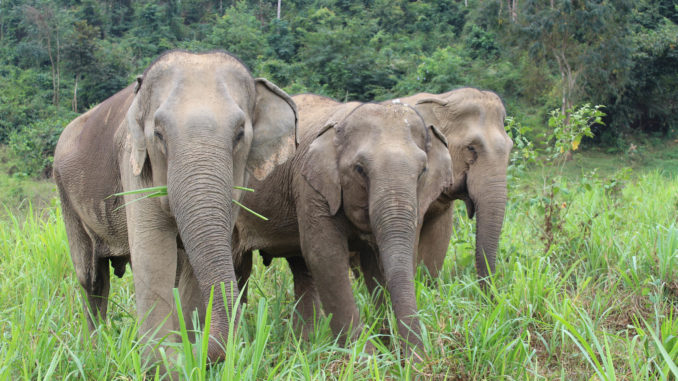
The Travel Corporation partners with World Animal Protection to help protect animals in tourism.
TORONTO, March 28, 2018 /CNW/ – The Travel Corporation’s family of brands including Contiki and Trafalgar, as part of its continuing sustainability journey, have partnered with World Animal Protection to help ensure their policies and itineraries improve the lives of animals everywhere they travel.
World Animal Protection has worked with TTC in reshaping the experiences they offer to be more animal-friendly and supporting the phase out of cruel activities including bullfights, captive whale and dolphin attractions and, most significantly, removing elephant rides and shows from their trips visiting Thailand.
“At TTC and our not-for-profit The TreadRight Foundation, we recognize the immense potential the travel industry has to change the world for the better and we can do that with the valuable guidance of leading organizations like World Animal Protection,” says Brett Tollman, Chief Executive, The Travel Corporation and Founder, The TreadRight Foundation.
This past September in Bangkok, World Animal Protection brought together TTC and other leading global travel companies including TUI Group and EXO Travel to meet with representatives of elephant riding camps across Thailand. They demonstrated a shift in consumer demand for elephant-friendly tourism, and encouraged local camps to phase out rides and shows and transition instead to elephant-friendly venues.
“We are proud to have partnered with World Animal Protection to work towards ensuring that the travel industry comes together as a community to protect wildlife and help show that animal-friendly venues can be profitable for local communities in the long-term. We appreciate that this is an important animal welfare issue that is bigger than any single organization,” continues Tollman.
Many tourists from around the globe visit Thailand to see elephants but increasingly, these travellers are beginning to understand the lifetime of psychological and physical trauma elephant rides and shows cause. A 2017 survey shows a significant drop of 9% (to 44%) in the number of people who find elephant riding acceptable compared to just three years ago. The research shows that more than 80% of tourists would prefer to see elephants in their natural environment.
“Attitudes are changing as travellers are learning more about the fear, pain and suffering elephants undergo to make rides and shows possible”, says Steve McIvor, CEO, World Animal Protection. “Travellers are increasingly demanding options that better align with their values. With the help of global travel partners like TTC we can prove that elephant-friendly attractions, those without forced and dangerous interactions with wildlife, make both ethical and financial sense for local venues. The direction of sustainable tourism is clear.”
TTC and more than 180 other global travel companies have agreed to no longer offer visits to venues with elephant rides and shows in any of their markets. As well, in 2016, TripAdvisor, the world’s largest travel site announced they would stop selling tickets to experiences where tourists have direct physical contact with captive wild animals or endangered species.
About the TreadRight Foundation
The TreadRight Foundation, a not-for-profit joint initiative supported by TTC’s family of brands, has worked directly with World Animal Protection to implement the TreadRight Animal Welfare Policy, based on the Five Freedoms of Animal Welfare, to help ensure all the experiences offered by TTC’s family of brands meet globally recognized animal welfare criteria.
About World Animal Protection
World Animal Protection, formerly known as the World Society for the Protection of Animals (WSPA), is active in more than 50 countries. From our offices around the world, we work with businesses, governments, local partners and animal welfare organizations to find practical ways to prevent animal suffering worldwide. www.worldanimalprotection.ca
About the global research on consumer attitudes:
This study was commissioned by World Animal Protection and conducted by KANTAR PUBLIC via TNS online omnibus from 21–26 August 2014 and 12–16 January 2017. Sample 12,381 across 12 countries. A total of 1,050 Canadians were surveyed. Data was weighted to be representative by age, gender and region within country.
SOURCE World Animal Protection

Leave a Reply